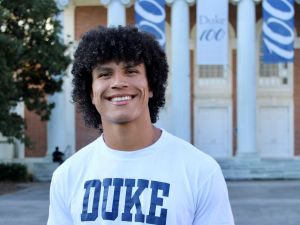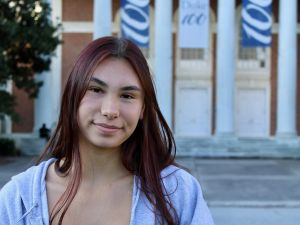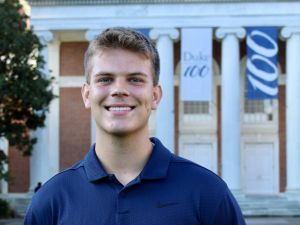What Can Literature Tell Us About Science?

Billy Cao, a Trinity senior graduating in 2025 with majors in Literature and Biology, has always been interested in the interaction between the humanities and sciences. However, he realized that when people think about that interaction, the humanities usually get short shrift.
Through classes in global culture and theory, Cao was inspired to examine the ways in which the humanities can play a central role in our understanding of scientific inquiry.
Antonio Viego’s Literature class, Introduction to Psychoanalytic Theory, presented Cao with new ways of thinking about the human mind and how mental disorders are diagnosed and categorized. He became particularly interested in the historical construction of Borderline Personality Disorder (BPD).
There’s a widely held assumption that psychiatric disorders are as discrete and clearly defined as broken arms or cases of the flu. In his senior thesis, “Borderline Cases: Borderline Personality Disorder and the Psychopolitics of Fiction in the Postwar United States,” Cao shows instead that the categorization of these standardized disorders takes place within a culturally defined place and time. He argues that historical fiction, such as Herman Melville’s “Benito Cereno,” can offer critical insights into the dilemmas of psychiatric research.
“I was interested in the interpretive practices of psychiatric researchers,” he said. “I found that they presented their interpretations as purely objective and free from biases, even though they were making covert assumptions about what mental health looked like and which behaviors were considered healthy.”
In the past, the male-dominated fields of psychiatry and psychology ascribed certain disorders disproportionately to women. “There's been a lot of feminist scholarship that tries to reclaim psychiatric labels such as BPD,” Cao said. “Some people are now using these labels in a colloquial sense to describe themselves.”
Cao urges caution, though. “Even though recourse to these labels can help combat the stigma associated with mental illnesses, lack of attention to their historical construction may also limit our understanding of ourselves and how our minds work.”
Cao works in the lab of Professor Lucia Strader, where he studies plant hormone signaling pathways. He’s planning to pursue a career in molecular biology.
He credits his study of literature and theory with broadening his perspective about the filters through which we view scientific discoveries. “I pay a lot of attention to issues of representation, to how language is used and other aspects of scientific inquiry that are often framed as purely objective,” he said. “I think my training in the Program in Literature will allow me to think about science in a very different way.”



